October Surprise: How Foreign Policy Can Shape US Presidential Elections
The president’s recent diagnosis with Covid-19 sent the US presidential election race into a tailspin. As Donald Trump and Joe Biden jockey to regain control of the media narrative at a crucial phase of the campaign, speculation about a possible “October surprise” is widespread. Today, the term refers to any news story that breaks late in an election cycle and has the potential to affect the outcome of the election. Yet its origins are firmly rooted in foreign policy. In particular, the phrase describes a sitting president’s alleged propensity to manipulate events to boost their electoral prospects. The president’s recent tweet calling for all remaining US forces in Afghanistan to return home by Christmas has fueled suspicions that Trump is playing politics …

A campaign for the poor? The politics of Medicaid and the 2020 election
Since the 2018 midterm election, Democratic socialists have been leading voices in the Democratic Party, a trend that was all the more evidenced by Bernie Sanders’ resounding primary victories in states like Nevada, Colorado, and among others California. If anything, these voices have successfully brought poverty and social justice to the forefront of the Party’s politics as issues like child poverty, wages, housing and education dominated the primary debates. This was especially the case in Iowa on 14 January as protests by the Poor People’s Campaign took place outside the debate venue. The organisation represents the interests of the poor with a name referencing a series of demonstrations for economic justice organized in 1968 under the leadership of Martin Luther …
Can #BernieOrBust Be Justified? On the Ethics of Voting
The #BernieOrBust slogan was widely adopted in the 2016 Presidential Elections by ardent supporters of Senator Bernie Sanders. These devotees insisted that they would not vote for any candidate (namely Hillary Clinton, the eventual Democratic Party nominee) in the eventual general election showdown with Trump. Four years later, the slogan has resurfaced as a credible threat directed toward what many perceive to be a recalcitrant Democratic Party establishment. In what follows, I do not claim that “#BernieOrBusters” are morally justified (all things considered), but merely offer a possible defence for why some #BernieOrBust advocates are behaving in a rationally justified manner. I grant two premises amenable to most critics of #BernieOrBusters: first, Trump is a highly problematic candidate in his actions and dispositions; second, whilst not …
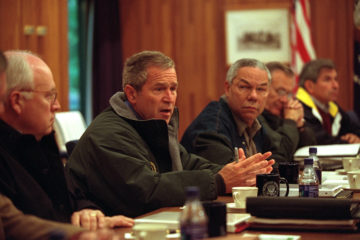
War and the Ballot Box: What the Iraq War Tells Us About Military Escalation in an Election Year
U.S. presidents have powerful political incentives to think twice before escalating a conflict in the lead-up to an election. Recent events in the Gulf suggest that President Trump is no exception when it comes to avoiding the commitment of “boots on the ground” in an election year. As both commander-in-chief and holder of the highest elected office, presidents must carefully weigh the political consequences of any decision regarding military strategy. Since voters tend to bear the brunt of the human and financial costs of war, decisions to send additional U.S. forces into combat are often fraught with risk of consequent reprisal at the ballot box. In my recent article in International Security, I explore how these electoral pressures affected decision-making during the Iraq War. …
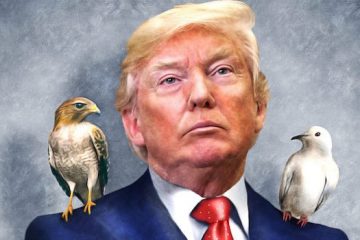
Hawk, Dove, Eagle or Headless Chicken? US Foreign Policy under Trump
In early September, President Donald Trump lost his third National Security Adviser, John Bolton. Since then it emerged that the two clashed over a number of issues, with the former advocating for US intervention in a number of countries and the latter favoring a less confrontational approach. Reportedly, Trump quipped that “if it was up to John, we’d be in four wars now.” In fact, the president has repeatedly stated his aversion to foreign (mis-)adventures. Trump’s “America First” approach to foreign policy has been at odds with Bolton’s “America Everywhere” approach from the outset. Why, then, did a president with such dovish tendencies chose a hawk’s hawk as National Security Adviser? What does the ouster of John Bolton tell us …
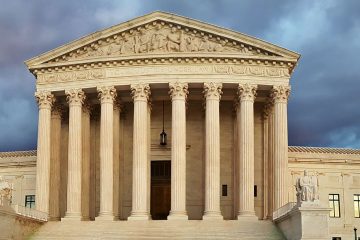
Who is Afraid of Supreme Court Justice Brett Kavanaugh?
President Donald Trump’s nomination of Brett Kavanaugh to the US Supreme Court has unsurprisingly been greeted by delight from the Right and despair from the Left. The chance to remake the image of the Supreme Court for decades to come with the nomination of a relatively young and reliably conservative justice is dreaded by some and celebrated by others. The significance of Kavanaugh’s – virtually guaranteed – confirmation to the Supreme Court is compounded by the fact that he would replace justice Anthony Kennedy. Kennedy has long been the decisive “swing vote,” who sometimes siding with the four conservative justices and sometimes with the four liberal justices. Being the deciding vote on many cases, Justice Kennedy played an outsized role in …
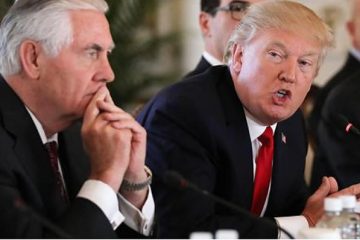
Trump & Tillerson: The End of a Rocky Relationship
In yet another major shake up of his administration, Trump, via Twitter, has declared that he will be replacing Secretary of State Rex Tillerson after only fourteen months, the shortest occupation of the position in modern history. Tillerson will be replaced by CIA Director Mike Pompeo after months of both public and private disputes between the former head of Exxon Mobil and the US President. Administration officials have claimed Tillerson was unaware of his imminent release, allegedly learning only briefly of his impending firing. For those who have been keeping up to date with the inner machinations of the controversial administration, it is concurrently unsurprising that Tillerson has met this fate, and surprising that it has taken this long. The …
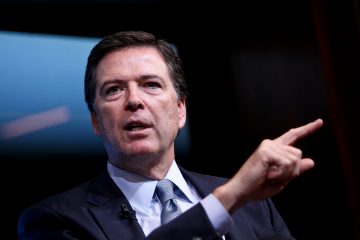
Why Did Trump Fire Comey?
On May 9, President Donald Trump fired the director of the FBI James Comey in a risky and largely unprecedented move. Initially, members of the Trump administration argued that Comey was fired because his incompetent handling of Hilary Clinton’s email scandal had cost him his legitimacy. Why would President Trump fire the head of an agency that symbolizes the integrity of law enforcement and rule of law of which the American system is so proud? In American history only one other FBI director has ever been fired. In 1993, President Bill Clinton fired William Sessions, a Republican hold-over from the Ronald Reagan administration. As the Nixon Presidential Library was at pains to point out, not even President Richard Nixon dared to …









